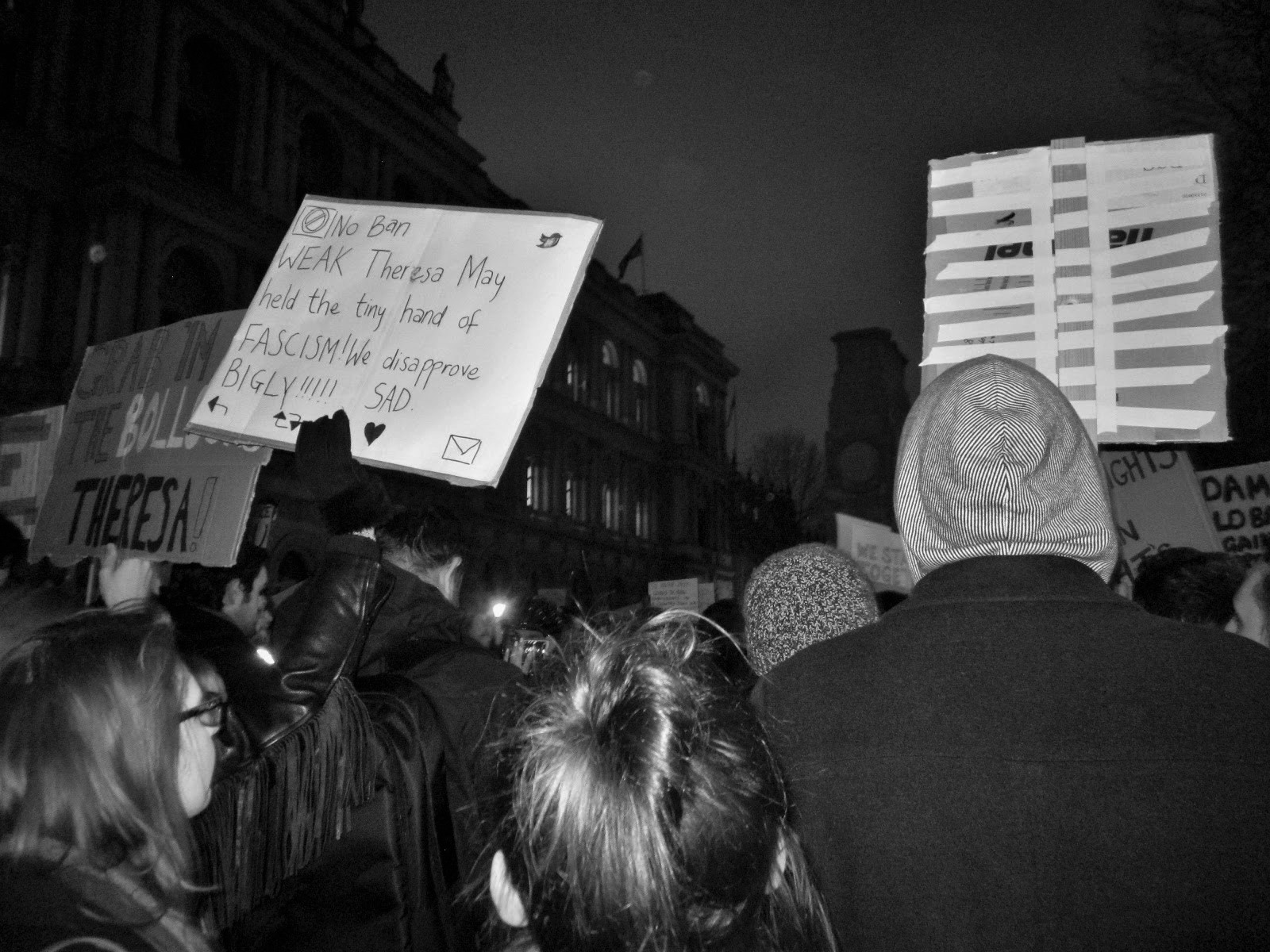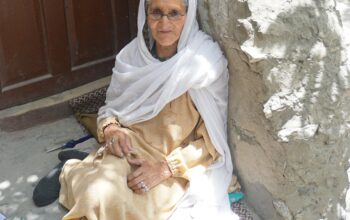Listen to the past? No, the future!
Since children and young people are humanity’s future, they should in theory be thought of as the most important humans. But do you feel like that? They are the most vulnerable persons and often suffer the most in conflicts and catastrophes. Everyone knows what parents used to say: “You still have to learn and grow up first before you can make an important decision.” This is also what children hear when it comes to politics. They are not taken as seriously as adults. Or they are only seen as victims, but not as actors.
The future is about and for us, the young, so why should we not engage in it? There are many ways of exercising influence and no shortage of examples of young people doing so. This article wants to show some of their ways, to remind you that we all have a voice and possibilities we can use.
Active in the Real World – Protest, Petitions and Speaking up
The most direct way to raise political attention about the youth’s problems is through active engagement in politics and civil society, by participating in youth organisations of political parties, starting petitions or political activism.
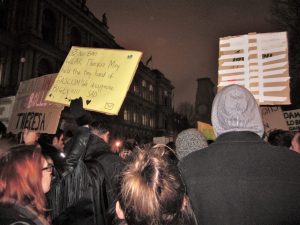 The generation gap between the elderly and the young population is an issue with multiple effects on the demographic landscape of politics. When the generation divide is too oppositional, political activism of the youth arises. This has become increasingly visible all around the globe: in the US not only adults but high school students march against the lose gun laws, young people participated in the radical political protests during the Arab Spring, and there is much dissatisfaction with the generation clash of the Brexit referendum.
The generation gap between the elderly and the young population is an issue with multiple effects on the demographic landscape of politics. When the generation divide is too oppositional, political activism of the youth arises. This has become increasingly visible all around the globe: in the US not only adults but high school students march against the lose gun laws, young people participated in the radical political protests during the Arab Spring, and there is much dissatisfaction with the generation clash of the Brexit referendum.
Children’s voices can be powerful and loud. Even though not everyone will change the world completely, small steps are important. Some voices got heard worldwide and have a long lasting influence on the recognition of children’s issues. Malala Yousafzai and Severn Suzuki addressed issues of the future, such as education and climate, which are often neglected in the high political debates.
Learn politics: youth parliaments and conferences
There are also ways for young people to learn for their future in politics. Youth Parliaments exist on different levels, nationally and internationally. Slightly different are political simulations as for example the Model United Nations (MUN). They take place all around the world. International guests come together to get an impression of how decision-making works. They aim at educating and empowering the youth, and giving them a possibility to express their opinions, ideas and solutions.
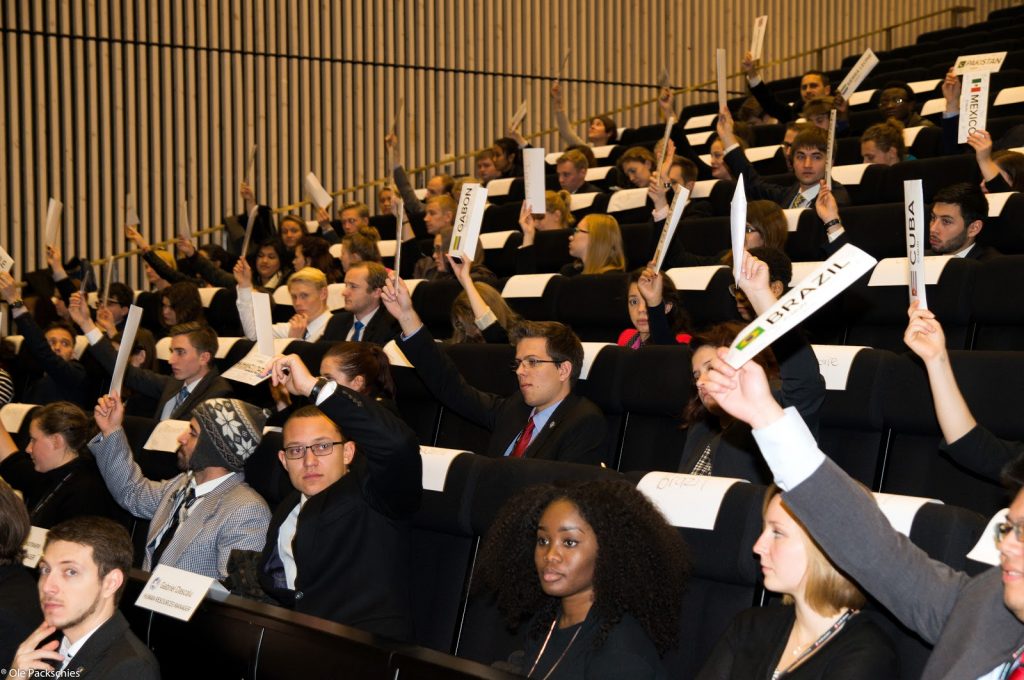
The question is, how much power to invoke change do political simulations actually provide? The organisers state that they can be influential in the sense, that the participants learn about their own capabilities and possibilities, but also that they can communicate their messages through meetings and media to the public and politicians.
Personal criticisms can be found on platforms like the questions-and-answer website Quora, where former participants exchange their experiences. It is possible to make a detailed analysis of the opinions expressed, but you can also quickly get a general impression. There are positive, enthusiastic comments that express the unique chance MUN conferences offer to test skills in communicating, negotiating and presenting in an environment you would never have at university. It taught them, how much research and effort you need to put into decision-making. But there are also many disappointed voices who see the MUN’s being used as for acting cool and important, winning prices and taking it as a step on the career ladder – not as something that you could take seriously as an effective means for facilitating change.
As you can imagine, these personal experiences depend a lot on when, where, and with what participants and organisers people attended the conferences. But when you read through the statements, the impression is that those who participate regularly at such conferences see it as an elitist club of which they are part of. The expression “MUN careers” is used which makes me wonder if the unspoken purpose is to select and train the next generation of aligned, political leaders.
In front of our eyes – MUNmö 2018
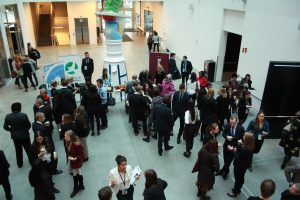 One conference is taking place at Malmö University: the MUNmö in mid-november. This gave me the chance to talk to Liana Shabbar, one of our fellow GPS students, regarding the conferences’ purpose and goals. She is the Human Resource Manager at MUNmö 2018 and has also participated in MUNmö before, so she can provide an inside view most of us do not have.
One conference is taking place at Malmö University: the MUNmö in mid-november. This gave me the chance to talk to Liana Shabbar, one of our fellow GPS students, regarding the conferences’ purpose and goals. She is the Human Resource Manager at MUNmö 2018 and has also participated in MUNmö before, so she can provide an inside view most of us do not have.
“I think the purpose of it is really to get the Youth involved in world politics, because the Youth can be detached from what is happening in politics right now.”
Shabbar said, the Model UN can be useful for everyone who wants to work in international organisations or in the field of politics, even if they do not like the UN institutions, because it gives an inside look into the power they actually have and what processes, formalities and bureaucracy they work with. Even though it is a simulation, it shows the entire process and involves the youth in it.
“I think it gives people the opportunity to research subjects that maybe they would not have done otherwise and see them in a more diplomatic sense than just doing plain research.”
According to Shabbar, MUN provides a chance for students to prepare for the future, since it teaches to find solutions and look at problems not only in theory, but also realistically.
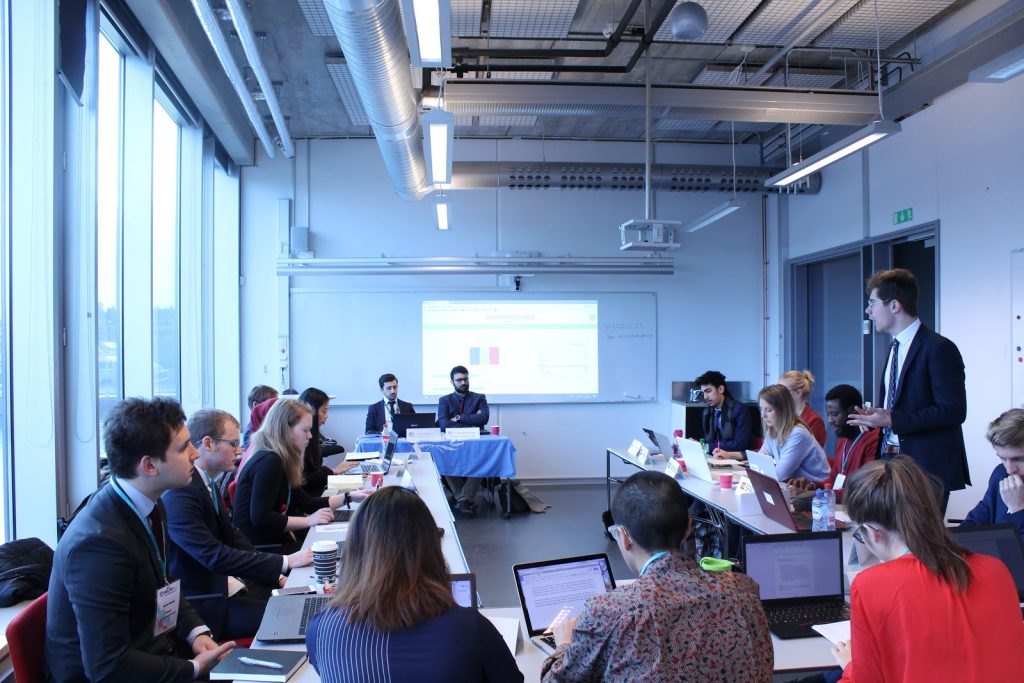
The Road Ahead
Age can be an obstacle but it is no excuse when you want to create change. The possibilities that juveniles have to influence politics are in the end the same as those that adults have. I remember Hannah Stanton’s speech at last year’s MUNmö. She told us that we have the chance to make the world a bit better every day – if only we start doing something. No matter whether it is uncomfortable or something small – we do not need to start the world revolution today – but we can start acting. And I remember her saying that MUN conferences are not about having a fancy dinner or pretending to be a diplomat but that it is about the exchange and improvement of ideas we have for our future.
by Nina Kolarzik
Photo Credit:
Young People Protesting, Merle Emrich, All Rights Reserved
photos of MUNmö provided by UF Malmö, All Rights Reserved
